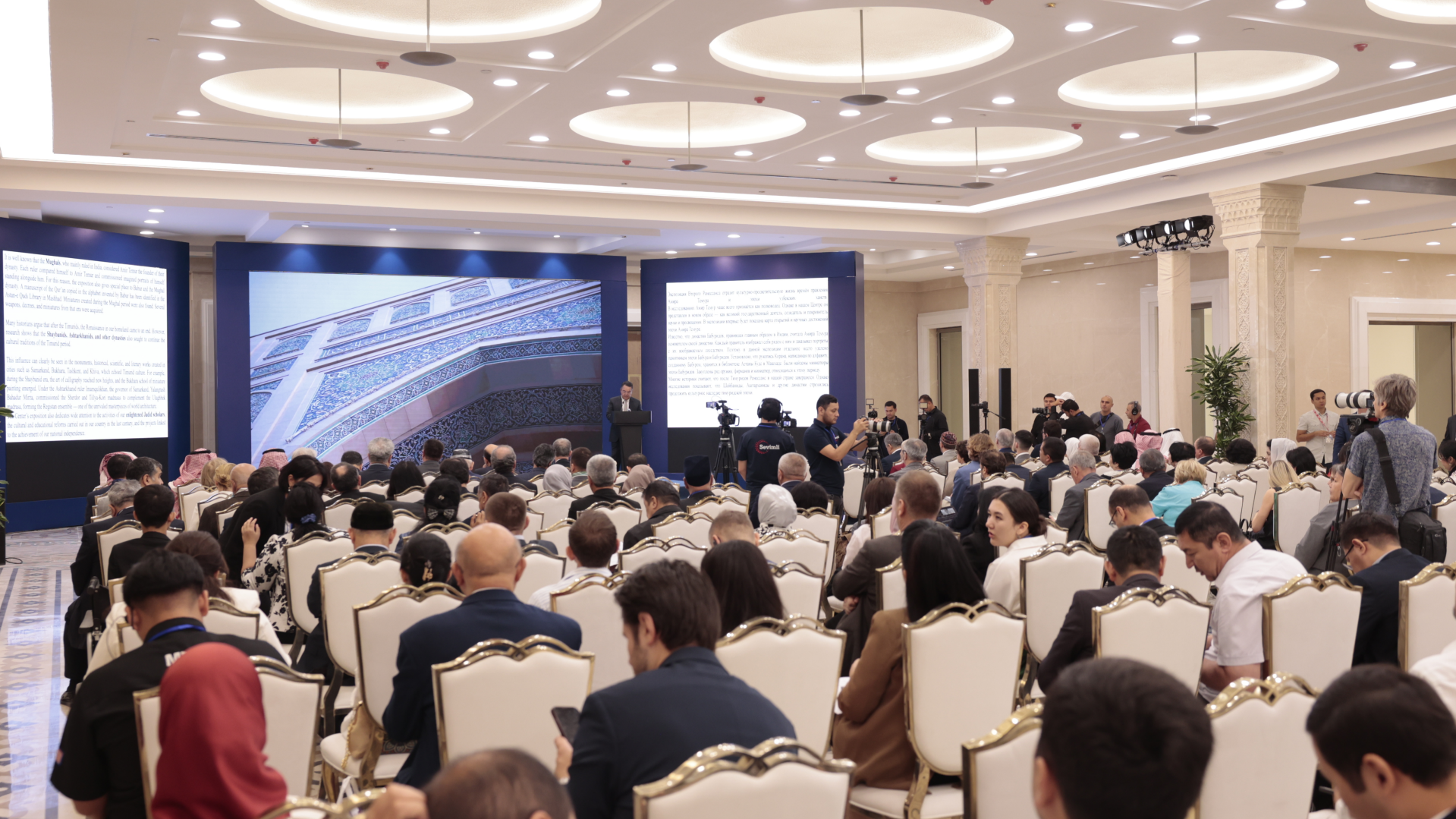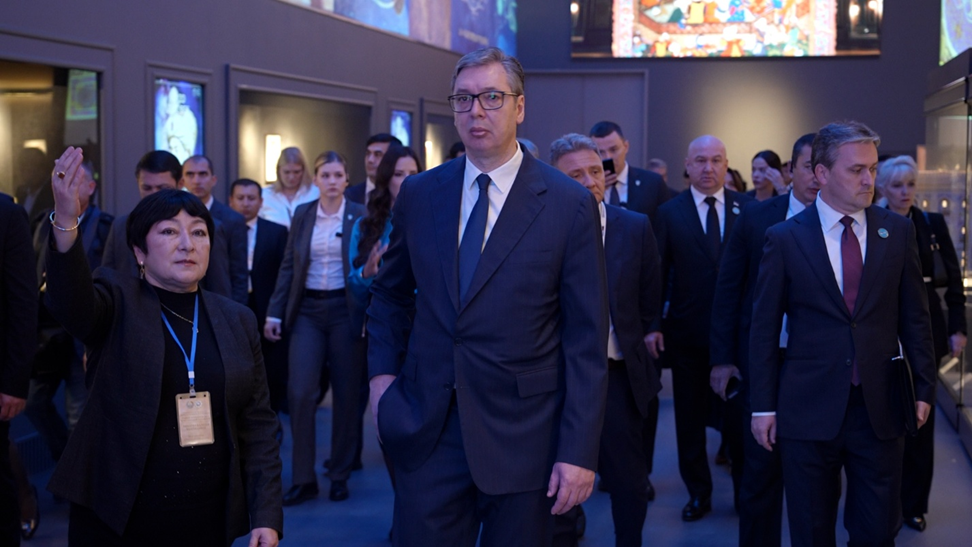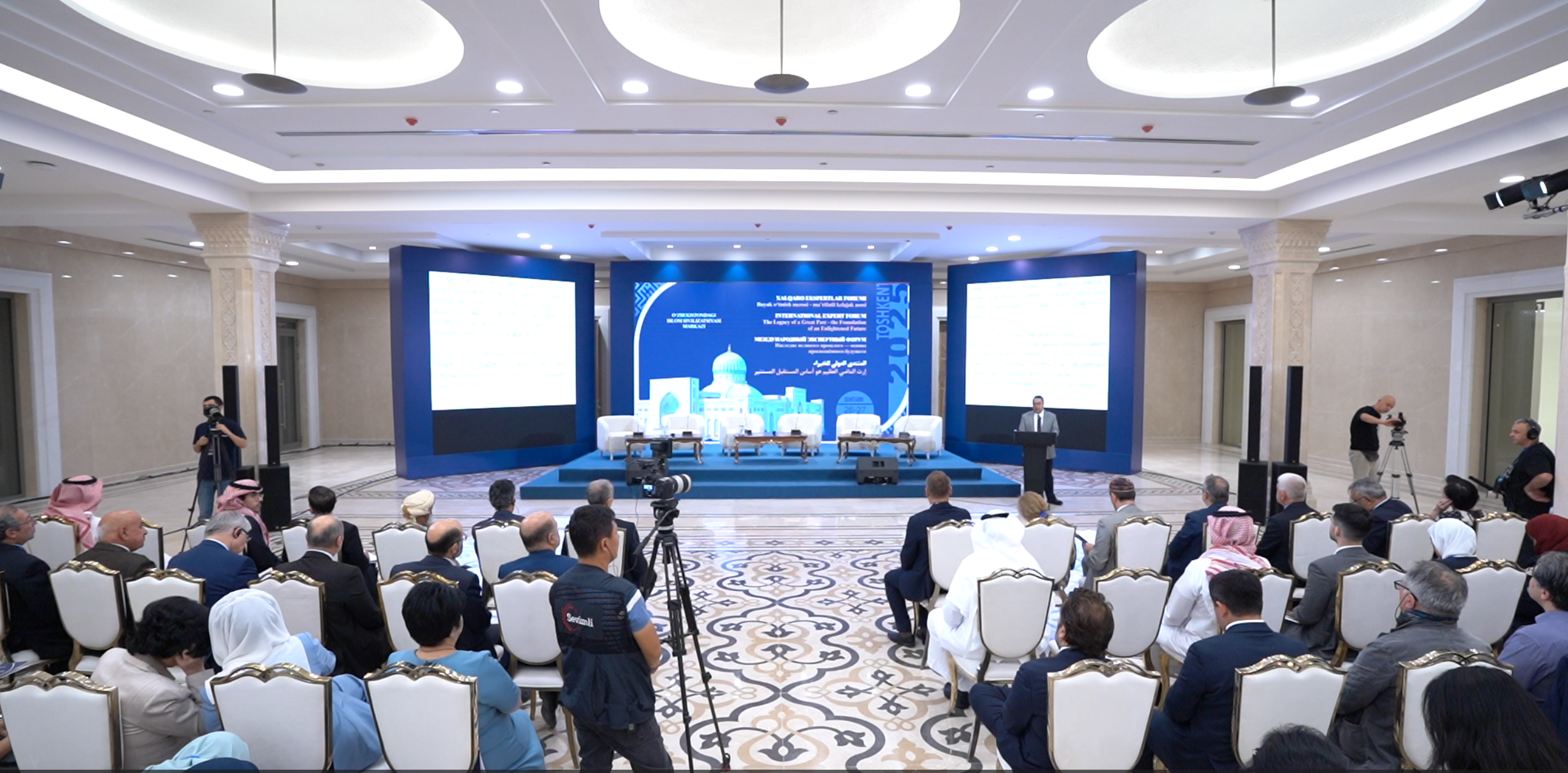PAKISTAN OBSERVER: “Uzbekistan has become the new Center for Islamic Civilization”

The article by Dr. Mehmood Ul Hasan Khan - President of the Center for Knowledge and State Policy of the Islamic Republic of Pakistan, regional expert on China, specialist on Eastern and Central European Cooperation (SRES) and the “Silk Road” Initiative highlighting Uzbekistan’s unique place in history as a land of great thinkers, sages, and creative minds, and recognizing its spirit of a knowledge-based society, trust grounded in logic, stability, and prosperous life, has been published in Pakistan’s “Pakistan Observer” newspaper.
According to the article, this center located within the historic Hazrati Imam complex in Tashkent is a culturally and scientifically significant institution that serves as a perfect venue for multiculturalism, ethnic diversity, tolerance, interfaith harmony, and intellectual thought.
The establishment of the Center has placed Uzbekistan among the world’s leading cultural centers, alongside the Louvre in Paris, the Smithsonian Institution in Washington, and the Arab World Institute. Designed as a modern museum and scientific complex, the Center embodies the creative and dialogic role of Islamic civilization and unites science, innovation, a library, and education in one hub serving as an inspiration for a new generation of scholars, researchers, and thinkers.
The Center was founded by a decree of President Shavkat Mirziyoyev on June 23, 2017. Its foundation stone was laid on June 15, 2018 the day of Eid al-Fitr. Scheduled to open to the public in November 2025, the Center reflects Uzbekistan’s firm commitment to preserving and honoring its rich Islamic heritage.
The artworks within the Center were carefully selected by historians, architects, and craftsmen, taking visitors on a journey through Uzbekistan’s history and illuminating the profound contributions of Islamic scholars to science, culture, and education. Moreover, the Center promotes humanitarian values, respect for history, and tolerance among youth, strengthening peace and harmony.
The Center for Islamic Civilization in Uzbekistan works in close cooperation with international organizations such as UNESCO and ICESCO, creating an ideal platform for dialogue among cultures and religions. It fosters comprehensive education, promotes the peaceful essence of Islam, and upholds the values of tolerance, progress, and harmony while countering extremism.
The Center consists of five main sections:
➖ The Hall of the Holy Qur’an
➖ Civilizations of the Pre-Islamic Era
➖ The First Renaissance
➖ The Second Renaissance and the Era of Khanates
➖ New Uzbekistan — The Foundation of a New Renaissance
These sections reflect the continuity of human development, the cultural and scientific progression of civilization, and the dialogue between different cultures.
The Center also includes a restoration laboratory, conference halls, and offices of international organizations such as UNESCO, ICESCO, and the Oxford Centre for Islamic Studies. In addition, partnerships have been established with more than a hundred scientific institutions, museums, and libraries in Turkey, Russia, and across Central Asia.
As a global hub for Islamic cultural heritage, the Center for Islamic Civilization in Uzbekistan hosts international exhibitions displaying collections from the Islamic Arts Museum Malaysia, the Süleymaniye Library in Turkey, the Hazrat Sultan Complex in Kazakhstan, and the Library of the University of Bologna in Italy. It plays a vital role in countering modern extremism through enlightenment, promoting peace, and fostering global dialogue.
Thus, through the construction of the Center, Uzbekistan is further consolidating its role as one of the key centers of Islamic civilization. The Center has become a symbol of the revival of Islamic heritage and of Central Asia’s contribution to world culture. Consequently, the Center for Islamic Civilization in Uzbekistan is recognized as both a source of national pride and a window of international dialogue.
President Shavkat Mirziyoyev advanced the establishment of the Center for Islamic Civilization in Uzbekistan as a strategic project aimed not only at strengthening national identity but also at promoting the values of tolerance, enlightenment, and progress inherent in Islam throughout the world.
One of the world’s oldest Qur’an manuscripts the Uthman Mushaf is preserved in the Center for Islamic Civilization in Uzbekistan, making it not merely a museum but a spiritual testimony to Islamic civilization itself.
Through this, Uzbekistan has sent a clear message to the world: Central Asia, while serving as a guardian of Islamic heritage, is also becoming a new driver of intellectual revival and global culture.
Recently, over 100 international experts gathered in Uzbekistan to discuss this major initiative on the study and preservation of Islamic heritage. All of them recognized the Center as “a crucial turning point in showcasing Islamic heritage”.
During his visit to the Center for Islamic Civilization in Uzbekistan, President Mirziyoyev described it as a historic institution that would serve the people for centuries, emphasizing that “every ornament within it will be a mark in history”. He referred to this project as “a cultural and spiritual initiative that represents Islam as a religion of goodness, humanism, and enlightenment”.
In his address to the United Nations General Assembly, President Mirziyoyev stated:
“While consistently pursuing a policy of tolerance in our society, we will continue our efforts to study and promote the ideas of Islamic enlightenment throughout the world”.
Most read

Over 100 experts from more than 20 countries of the world are in Tashkent!

President of Serbia Aleksandar Vučić visited the Islamic Civilization Center in Uzbekistan

The Center for Islamic Civilization – a global platform leading towards enlightenment











